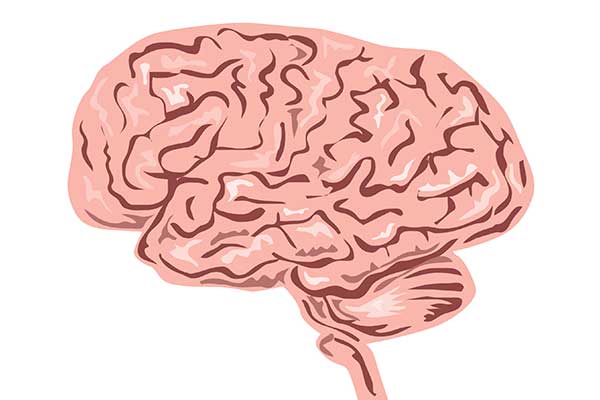
A brain injury of any kind can cause destruction or permanent deterioration of the brain cells. In the United States, brain injuries occur more frequently than you might realize – with 2.6 million people per year suffering from some type of brain injury. Many die from traumatic brain injuries each year, because the human body relies on the brain for necessary and essential functions such as breathing.
If you are in an accident and suffer a brain injury, it is vital that you seek medical treatment and continue all medical therapies prescribed. These injuries can be severe if not fatal when they are improperly treated.
How Serious Are Brain Injuries in Vancouver Motor Vehicle Accidents?
A common cause of brain trauma is motor vehicle accidents. After a traumatic injury to the brain, whether the victim loses consciousness or not, symptoms might start to appear within minutes or days after the crash. A victim might also suffer from post-traumatic amnesia (PTA), where they temporarily forget what has happened. Any time one suffers from PTA, it is an indication of severe brain trauma.
Moderate Brain Injury
Moderate brain injuries involve a loss of consciousness that can last anywhere from 15 minutes to 6 hours. PTA could continue up to 24 hours after this type of injury. Victims with moderate brain injuries will typically be kept overnight in the hospital for observation and will only be discharged if they exhibit no other severe symptoms.
While it is termed as “moderate,” a person can still suffer from residual symptoms. These include:
- Fatigue
- Headaches and migraines
- Dizziness
- Inability to think or pay attention
- Memory recall issues
- Difficulty concentrating
- Cognitive effects
- Irritability
Performing regular job duties, even if the victim has performed these duties for decades, are difficult after moderate injuries. A person might not function at their highest level, and it could take up to nine months to fully recover from a moderate brain injury.
Severe Brain Injury
Severe brain injuries are those where a victim is unconscious for six hours or more. They may be unconscious for days, require surgical treatments, and may suffer long-term effects. Also, the PTA typically lasts 24 hours or more with a severe brain injury.
Patients are typically hospitalized and will require rehabilitation afterward. Depending on the period for the coma, a victim may have severe physical deficits that they might never fully recover from.
How Are Brain Injuries Treated?
Brain injuries that are mild, which are typically labeled as a concussion, are still dangerous and require monitoring. Usually, physicians concern themselves with the location and extent of the damage to the brain. A brain injury might not result in long-term disability or even impairment. However, the injury must be diagnosed, monitored, and treated.
Physicians will conduct neurological examinations, testing (including MRI or CT scan), and other assessments to help determine the extent of the injury. Doctors will then stabilize the patient, if necessary, to make sure the body receives adequate blood and oxygen flow and that blood pressure remains controlled.
In instances of severe trauma, the victim may need emergency neurological surgery. Other times, the treatments would be rehabilitative in nature, such as:
- Physical therapy
- Occupational therapy
- Speech or language treatment
- Psychological treatment
The Long-Term Impact of a Brain Injury
What most people do not realize is the long-term impact that comes from a brain injury. There are no common outcomes, and each person and injury are unique. Therefore, some people may suffer a more extended recovery period while others can recover and resume normal activities within a few short weeks.
The brain is the center of control for the human body. Therefore, various areas of a person’s life are affected by the trauma including feelings, cognition, and more.
Thinking and Cognitive Effects
A moderate to severe brain injury can cause issues with cognitive abilities, including:
- Keeping attention
- Concentrating on tasks
- Remembering something recently learned
- Thinking slowly
- Speaking slowly
- Solving problems slowly
- Becoming confused easily
Also, impulsive responses might become more common. This is the brain’s coping mechanism when it cannot resolve an issue. Therefore, instead of thinking about something before doing it, a person might be more inclined to jump on the first option – whether it is the right option or not.
Mood and Behavior
The brain controls not only physical, but also emotional functions. Therefore, it should be no surprise that emotion and mood are affected. With a moderate-to-severe brain injury, a person might suffer from dramatic changes in their behavior. They might even have a personality change.
In some cases, the injured person may have post-traumatic stress disorder (PTSD). Symptoms of PTSD are anxiety, depression, unexplained mood swings, and irritability.
A person might also lose their ability to remain socially skilled. They may find themselves quickly agitated or even have no social filter. Typically, victims with moderate-to-severe brain injuries need training, therapy, and long-term emotional support to help them cope. Some of these psychological changes are temporary, but other times permanent degeneration will leave a person’s personality altered forever.
How Long Does a TBI Recovery Take?
A person sees most improvements after six months with gradual improvements thereafter. In most cases, full recovery will be seen in six months to two years. After that, most physicians would not expect dramatic changes. Also, the more severe the injury, the more likely permanent deficits will be seen.
Can You Seek Compensation for a TBI?
Traumatic brain injuries often affect a person for the rest of their life. They might be unable to work, socialize, or even engage with family members. They could suffer from extensive financial losses as well.
If you or a loved one has a severe brain injury that was caused by someone’s negligence, you might be entitled to compensation.
To explore your options, speak with an attorney from Brett McCandlis Brown & Conner, PLLC. You can schedule a free consultation with our office today at 206-429-8719 or request an appointment online.


